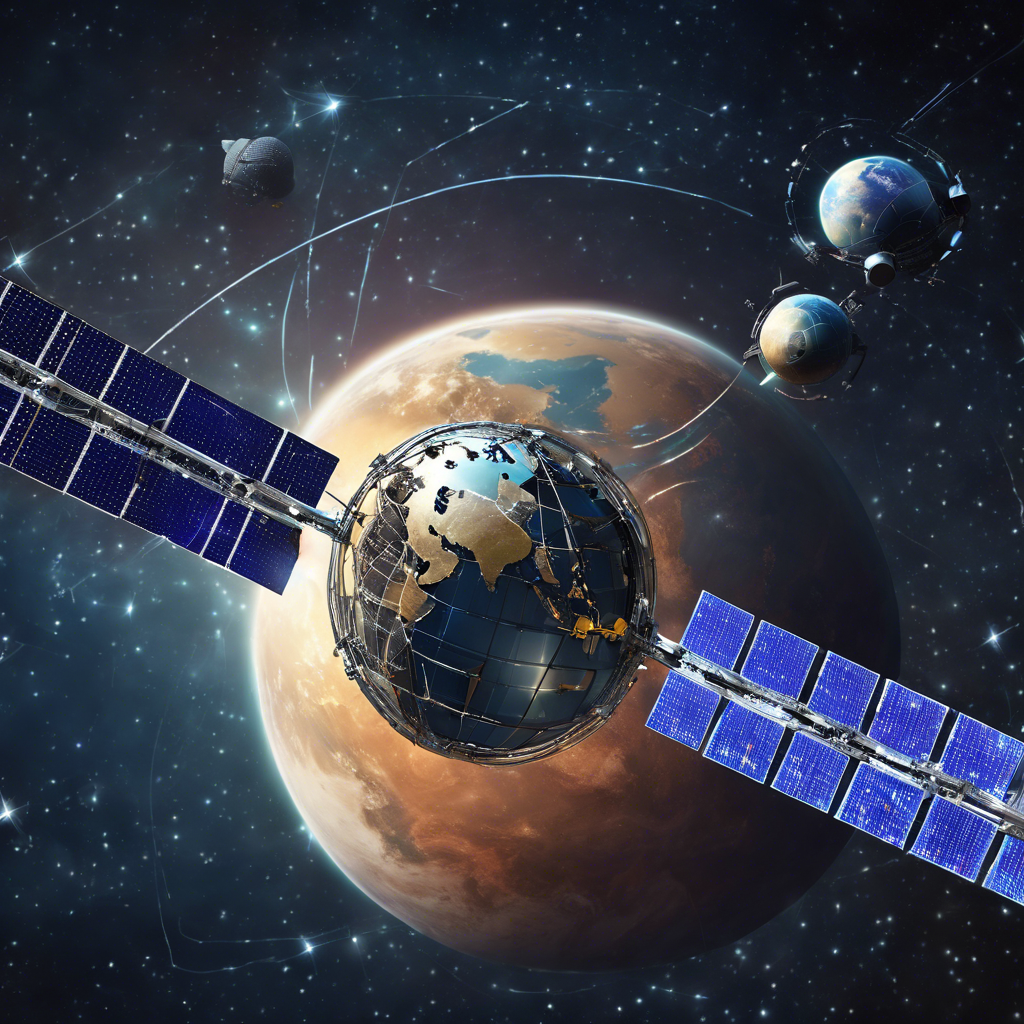AI Reshaping Space Telecommunications and Non-Terrestrial Networks

Artificial intelligence is revolutionizing industries, including the emerging field of space telecommunications, known as Non-Terrestrial Networks (NTNs). At a recent conference in Riyadh, industry leaders explored the potential of NTNs to offer global connectivity, aid climate understanding, manage disasters, and enhance resource utilization. While NTNs face regulatory challenges due to treaties like the 1967 Outer Space Treaty, they hold promise for the extraction of valuable space resources and the future of a multi-planetary society. NTNs are essential for global connectivity, as demonstrated by a reduction in the number of people without reliable internet access. They also provide crucial data for environmental and resource management. However, NTNs require advanced coordination, which AI can provide to handle the rapid increase in satellite launches and the vast data they generate. The number of civilian satellites is set to rise substantially, demanding AI's capacity for management and analysis. The Riyadh conference aimed to ensure fair NTN access and address challenges such as space debris.
Participants stressed the need for regulations to prevent catastrophic satellite collisions. NTNs involve a variety of assets, including Low-Earth Orbit and geostationary satellites, as well as High-Altitude Platform Systems like planes and drones. The latter offers cost-effective, stationary connectivity solutions. The U. S. currently dominates space with companies like Starlink and Amazon's Kuiper, but other countries are keen to secure NTN access. Eutelsat, for example, is expanding its satellite network with plans by the EU to launch additional satellites. Saudi Arabia is investing heavily in space initiatives as part of its Vision 2030 program. Having launched 17 satellites since 2000, the Kingdom aims to spend over $2. 1 billion more to build satellite constellations and establish itself as a leading NTN provider while ensuring fair access through strong regulation.
Brief news summary
Artificial intelligence (AI) is transforming industries, notably impacting Non-Terrestrial Networks (NTNs) in space telecommunications. At a Riyadh conference, experts explored NTNs' potential to enhance global connectivity and support environmental and interplanetary goals. A primary aim is to bridge the digital divide by decreasing the unconnected global population from 2.7 billion to 2.6 billion. NTNs are crucial in areas such as climate monitoring, disaster management, resource efficiency, and agriculture, with companies like Aramco using them for tasks like pipeline maintenance. Challenges arise from the 1967 Outer Space Treaty, but initiatives like the Artemis Accords underscore NTNs' role in risk mitigation and space resource extraction. Anticipated massive satellite launches, potentially reaching hundreds of thousands, make AI vital for optimizing resources and managing data. The conference emphasized fair NTN access, spectrum sharing, and regulation to tackle space debris and ensure satellite collision avoidance in line with international guidelines. NTNs employ Low-Earth Orbit satellites and High-Altitude Platform Systems. While networks like Starlink and Kuiper are primarily U.S.-based, global expansion is evident with entities like Eutelsat and the EU bolstering satellite operations. Saudi Arabia, through its Vision 2030 initiative, seeks to lead in space telecommunications with over $2.1 billion investments. The Kingdom promotes international cooperation to ensure equitable regulations and universal access to space telecommunications.
AI-powered Lead Generation in Social Media
and Search Engines
Let AI take control and automatically generate leads for you!

I'm your Content Manager, ready to handle your first test assignment
Learn how AI can help your business.
Let’s talk!

U.S. House Approves Blockchain Development Bill
On Wednesday, the U.S. House of Representatives made a notable advance by voting 279-136 to approve the Financial Innovation and Technology for the 21st Century Act (FIT21).

Google Plans to Sever Ties with Scale AI Amid Met…
Google plans to end its relationship with Scale AI, a leading data-labeling startup, following Meta’s recent acquisition of a 49% stake in the company.

Circle’s Native USDC Goes Live on World’s Blockch…
On Wednesday, June 11, the company announced that Circle’s USDC and the upgraded Cross-Chain Transfer Protocol (CCTP V2) had officially launched on World Chain.

Google's AI Mode for Search: Transforming User In…
Google has announced the launch of an innovative AI Mode within its search engine, aiming to transform how users engage with online information.

Il Foglio Integrates AI in Journalism with ChatGP…
Il Foglio, a leading Italian newspaper, has embarked on a groundbreaking experiment integrating artificial intelligence into journalism under editor Claudio Cerasa.

Crypto software company OneBalance raises $20 mil…
© 2025 Fortune Media IP Limited.

Meta's $14.3 Billion Investment in Scale AI to Ac…
Meta has revealed a major investment in the artificial intelligence sector by purchasing a 49% stake in the AI firm Scale for $14.3 billion.

 Auto-Filling SEO Website as a Gift
Auto-Filling SEO Website as a Gift








 Auto-Filling SEO Website as a Gift
Auto-Filling SEO Website as a Gift

